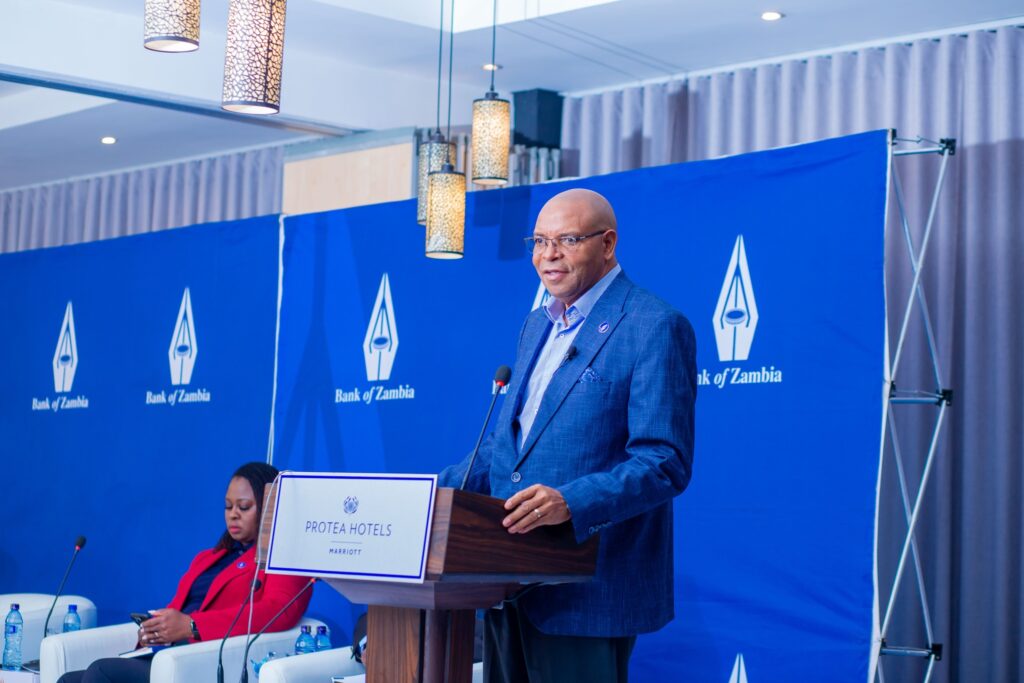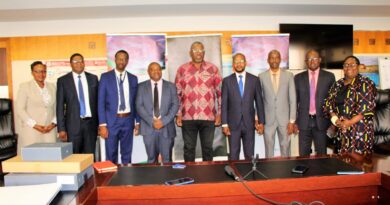Bank of Zambia Moves to Reinforce Kwacha as Sole Legal Tender
Bank of Zambia Governor Dr. Denny H. Kalyalya has reaffirmed the central bank’s commitment to strengthening the Kwacha as the country’s sole legal tender, announcing that new Currency Regulations will be implemented in a phased and simplified manner.
Speaking at the final round of consultative stakeholder engagements in Ndola under the Public Private Dialogue Forum (PPDF), Dr. Kalyalya highlighted the dangers of dollarisation, noting that excessive reliance on foreign currencies undermines the Kwacha, limits monetary policy effectiveness, and exposes banks and borrowers to significant financial risks.
“These new regulations are designed to reinforce the Kwacha’s role as the unit of measure, medium of exchange, and store of value,” he said, stressing that they align with the Bank of Zambia Act (2022).
The Governor acknowledged concerns raised by stakeholders from sectors such as mining, agriculture, real estate, tourism, and manufacturing. These included fears of indirect exchange controls, increased exchange rate risk, disruption to supply chains, and the challenges of implementation amid high inflation and tight liquidity. Stakeholders also called for clear criteria on exemptions and suggested phased enforcement.
In response, Dr. Kalyalya said the Bank had carefully weighed these concerns against macroeconomic imperatives. “The regulations will be rolled out gradually to maintain investor and business confidence, while exemptions have been designed to preserve market stability and prevent economic disruption,” he explained.
The new directives build on earlier reforms, including the Electronic Balance of Payments System (2019), the Export Proceeds Tracking Framework (2024), and updated Foreign Exchange Market Guidelines. They form part of broader efforts to strengthen Zambia’s foreign exchange market, supported by measures such as bolstering reserves and introducing hedging instruments like Non-Deliverable Forwards.
Dr. Kalyalya assured stakeholders that the Bank will continuously review the regulations and address implementation challenges. “Your support and pragmatic participation are deeply appreciated as we work towards a stable and resilient financial future for Zambia,” he concluded.
Speaking at the engagement on draft currency directives, PPDF Secretariat representative Kanja Ilunga said the Forum was established in April 2022 by President Hakainde Hichilema as a neutral platform for evidence-based dialogue.
“The PPDF ensures that reforms reflect both government priorities and private sector realities,” Ilunga noted, adding that since its inception, the Forum has helped resolve about 93 policy, taxation, and regulatory issues.
The Forum operates through Technical Working Groups (TWGs) spanning sectors such as finance, mining, agriculture, manufacturing, energy, tourism, ICT, and soon health—each co-chaired by the public and private sectors. The PPDF Secretariat consolidates submissions, benchmarks proposals with global best practices, and tracks progress until reforms are achieved.
Turning to the currency regulations, Ilunga stressed that clear and predictable directives are crucial for export earnings, import costs, and SME competitiveness. “This engagement here in the Copperbelt is exactly the type of dialogue we aim to strengthen,” he said.
The PPDF emphasised the mutual benefits of dialogue: providing government with structured private sector input, giving businesses a credible channel to raise concerns, and boosting investor confidence through predictability.
Closing the session, Ilunga urged stakeholders to provide candid feedback: “The Copperbelt is a critical hub for Zambia’s economy, and your input on these directives is not just welcome, it is vital. Together, we can build a competitive and resilient Zambian economy.”



